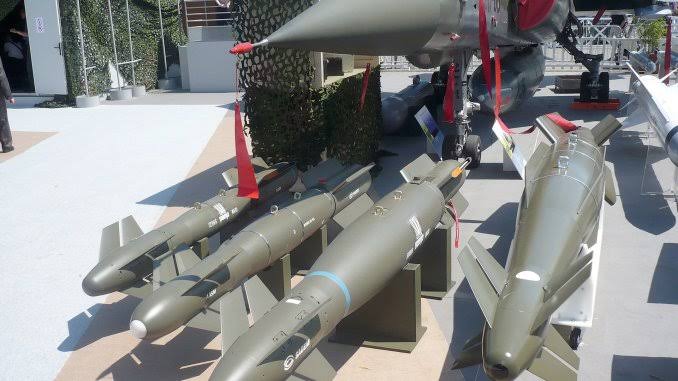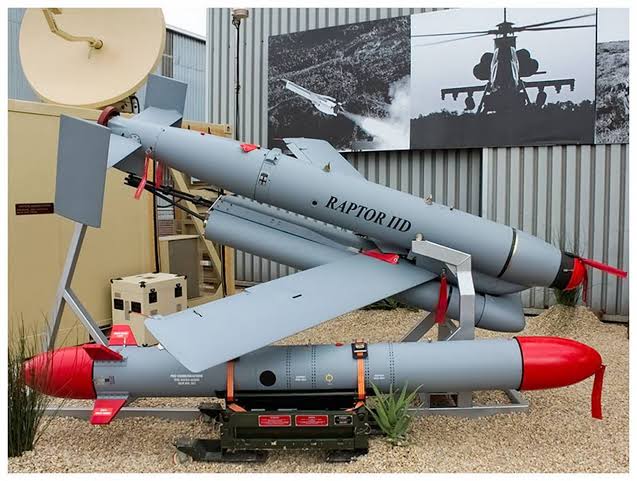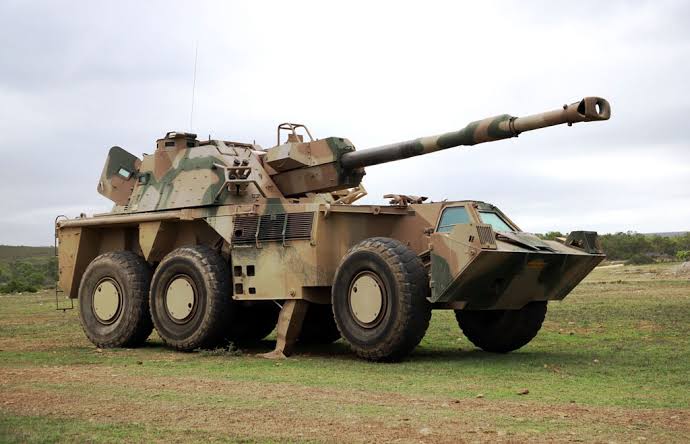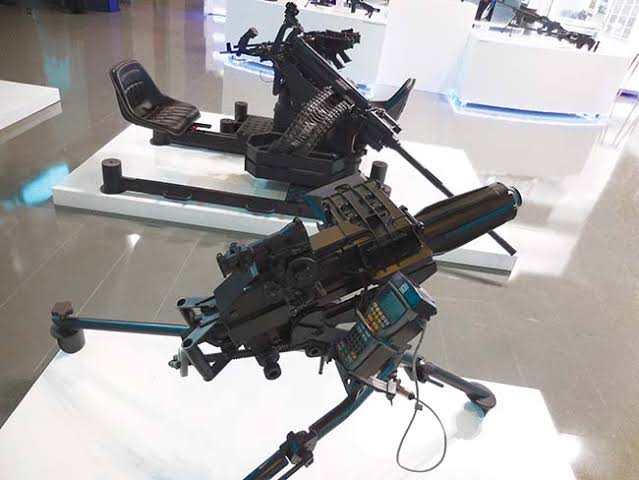
DefenceWeb
4th Mar 2022
The National Conventional Arms Control Committee (NCACC) has approved multiple defence transactions with Saudi Arabia and the United Arab Emirates (UAE), unlocking billions of rands worth of defence exports from South Africa.
This was revealed by Dr Moses Khanyile, National Defence Industry Council (NDIC) Coordinator, who was briefing the Joint Standing Committee on Defence on 3 March on plans to boost the South African defence industry. He noted that there have been issues with some countries in the Middle East that saw defence exports halted, but “this matter has been resolved following the decision by the National Conventional Arms Control Committee to approve normal transactions with these countries.” The countries include the UAE, Saudi Arabia, Turkey, and Oman.

Over R5.5 billion worth of transactions have been immediately unlocked thanks to the NCACC decision to allow exports, while R21 billion is still to be unlocked. Unfortunately, R2 billion in opportunities have been lost because of the impasse and delays emanating from the concerns Saudi Arabia and the UAE had.
In 2019 it emerged that the NCACC was insisting that it be allowed to inspect customer countries’ facilities to verify compliance and that they must sign end user certificates (EUCs) in which they pledge not to sell their weapons on to third parties. This caused a halt in export approvals to South Africa’s biggest military clients: Saudi Arabia and the United Arab Emirates, with experts warning the stricter regulations could destroy the South African defence industry.
Saudi Arabia and the United Arab Emirates, which account for at least a third of South Africa’s arms exports, rejected the inspections which they considered a violation of their sovereignty, whilst Oman and Algeria also refused inspections, and saw imports blocked.
Khanyile noted that the R5 billion in exports that has been unlocked pales in comparison to other exports to the Middle East – the United States, United Kingdom, France and Germany exported R135 billion worth of equipment to Saudi Arabia and the UAE between 2016 and 2020.
Khanyile said that even though South African exports have been allowed to resume, the prolonged delays have had a negative impact, leading to some companies being threatened with blacklisting; the cancellation or stalling on negotiations for future contracts; and loss of market share to competitors.
“It has definitely jeopardised the standing of the country and the industry in those countries and therefore it is important that something be done, that a comprehensive strategy be developed to undo the damage and re-engage all these countries in these regions,” Khanyile said.
“There is still an issue to deal with in Oman. Negotiations around new end user certificates were accepted by other countries like Saudi Arabia and the UAE but Oman still wants further clarity on the implications of the EUC.”
Khanyile emphasised that the NCACC is a clear enabler of business for the defence industry and is crucial in terms of getting approvals and speedily processing of permits. “The industry feels in considering permits it is important for the NCACC to ensure the primacy of national economic interests.”
He told the Committee that as there has been a steep decline in terms of local defence consumption, the industry has been forced to rely on exports. “Over three quarters of production is destined for the external market. The industry is urging government to play an active role in marketing the local defence industry, just as other major powers do when they engage their diplomatic counterparts. When other major countries have bilaterals, multilaterals, they normally include defence industry players because industry relies on other governments as clients.”
Khanyile said that each time the South African government engages other countries it is an opportunity to market the defence industry. “It is important delegations include defence industry players. Special attention should be paid to countries in Africa and the Middle East because that’s a growing market for the industry.”
South Africa halts arms exports to Saudi Arabia and UAE

Middle East Eye 2021
23 November 2019
South Africa has blocked arms sales to countries including Saudi Arabia and the United Arab Emirates (UAE) in a dispute over a clause that requires foreign customers to pledge not to transfer weapons to third parties.
The clause permits South African officials to inspect facilities to verify its compliance. However, Saudi Arabia and the UAE have rejected the inspections, claiming it would to be a violation of their sovereignty.
Engaged in a years-long war in Yemen, the Gulf countries stand accused of transferring arms to groups that rights groups say are committing war crimes.
The fallout has held up exports from South Africa’s struggling defence sector, endangering billions of dollars and thousands of jobs.
The Aerospace, Maritime and Defence Industries Association of South Africa (AMD) said the dispute could threaten the sector’s survival.
“We’ve got one clause that’s disabling us from exporting 25bn rand [$1.7bn] worth of value today, right now,” Simphiwe Hamilton, the head of the AMD, told Reuters.
A further $3.4bn to $4bn in future business and 9,000 jobs at defence firms and supporting industries are put at risk by the deadlock, the industry body said.

Combined, the two Gulf countries account for a third of South Africa’s arms exports. Oman and Algeria have also seen their imports blocked after rejecting inspections.
South Africa’s approach is rooted in reforms to its defence sector, once a pillar of the racist apartheid regime, since democratic rule was established in 1994.
Requiring inspections is uncommon in the international arms trade, though it is common practice to require clients to pledge not to transfer weapons to third parties in export documents known as end-user certificates.
Industry officials told Reuters that the clause requiring onsite inspections had long been included in an annex of end-user certificates, but rarely acted upon.
However, after arms control officials moved the clause to the front page of the certificates in 2017, some countries were reluctant to sign them.
“This is what’s making some of these countries uncomfortable,” Hamilton told Reuters. “You are encroaching on their sovereignty, and they cannot allow that.”
South Africa blocks arms sales to Saudi and UAE in inspection row

Al Jazeera
25 Nov 2019
Yemeni conflict
Since democratic rule was established in 1994, South Africa has sought to reform its defence industry – once a pillar of the racist apartheid regime – by making export approvals subject to human rights considerations.
Saudi Arabia is leading an alliance of Arab states, including the UAE, to try to restore the government of Yemeni President Abd-Rabbu Mansour Hadi, who was removed from the capital Sanaa by the Iran-aligned Houthis in 2015.
In February, Amnesty International accused the UAE of diverting arms supplied by Western and other states to militias accused of war crimes in Yemen. In the same month, a CNN investigation said Saudi Arabia and the UAE had transferred American weapons to Yemeni fighters, breaking the terms of their arms sales with the United States.
The UAE did not respond to the Amnesty allegations. The Saudi military coalition did not respond to CNN’s allegations, but a senior UAE official denied it violated end-user agreements.

The South African defence industry has become increasingly reliant on exports, which have grown more than 12-fold since 1990 as domestic defence spending has declined.
Exports now make up the bulk of revenues for major defence companies including Denel, Paramount Group, Hensoldt South Africa and RDM, which is a joint venture between Denel and German industrial giant Rheinmetall.
Saudi Arabia and the UAE alone represented a third of South Africa’s 4.7 billion rand ($318m) of authorised arms exports in 2018, according to data compiled by the National Conventional Arms Control Committee (NCACC), a group of ministers and deputy ministers that approves the exports.
‘Encroaching on sovereignty’
Requiring buyers not to transfer weapons to third parties is common practice in the international arms trade, stipulated in export documents known as end-user certificates. Requiring inspections, though uncommon, is not unheard of. Germany, for instance, requires them for small arms sales to certain countries.
The industry officials told Reuters that South Africa had long included a clause in its end-user certificates requiring on-site visits, though it was rarely acted upon.
Clients regularly amended or deleted the clause, which was included in an annexe, and the NCACC still granted export permits, they said. But in 2017, arms control officials moved the clause to the front page of the certificates, and some countries refused to sign them, according to the officials.
The clause requires customers to grant “access and permission to South African Government Authority’s representative(s)” to verify they are in compliance with South Africa’s defence export regulations.
“This is what’s making some of these countries uncomfortable,” Hamilton said. “You are encroaching on their sovereignty, and they cannot allow that.”
An NCACC official, who was not authorised to speak publicly, would not comment on the reason for the new format, and industry officials said they had not been told.
Matters did not come to a head until this year because arms contracts are often signed years before the anticipated delivery date, the company officials said.
Job losses on ‘a massive scale’
Some companies have already indicated that they will need to cut more than 500 employees if they cannot export their products soon, trade union Solidarity said.
On July 3, Solidarity and other unions wrote to Public Enterprises Minister Pravin Gordhan stating that failure to resolve the impasse would lead to “job losses on a massive and irreversible scale”.
“Customers in the UAE have already begun firing trials with China, India as well as Serbia with the intention to replace RDM as a preferred supplier of ammunition,” said the letter seen by Reuters.
Three weeks later, Norbert Schulze, RDM’s CEO at the time, wrote to the NCACC urging it to take action.
In his August 5 response, also seen by Reuters, NCACC chairman Jackson Mthembu said the body would not grant an exception.
“The NCACC is aware of the possible loss of jobs occasioned by the inability to export in the time being. However, as your organisation would appreciate, compliance with regulations sometimes produces negative impact,” he wrote.
